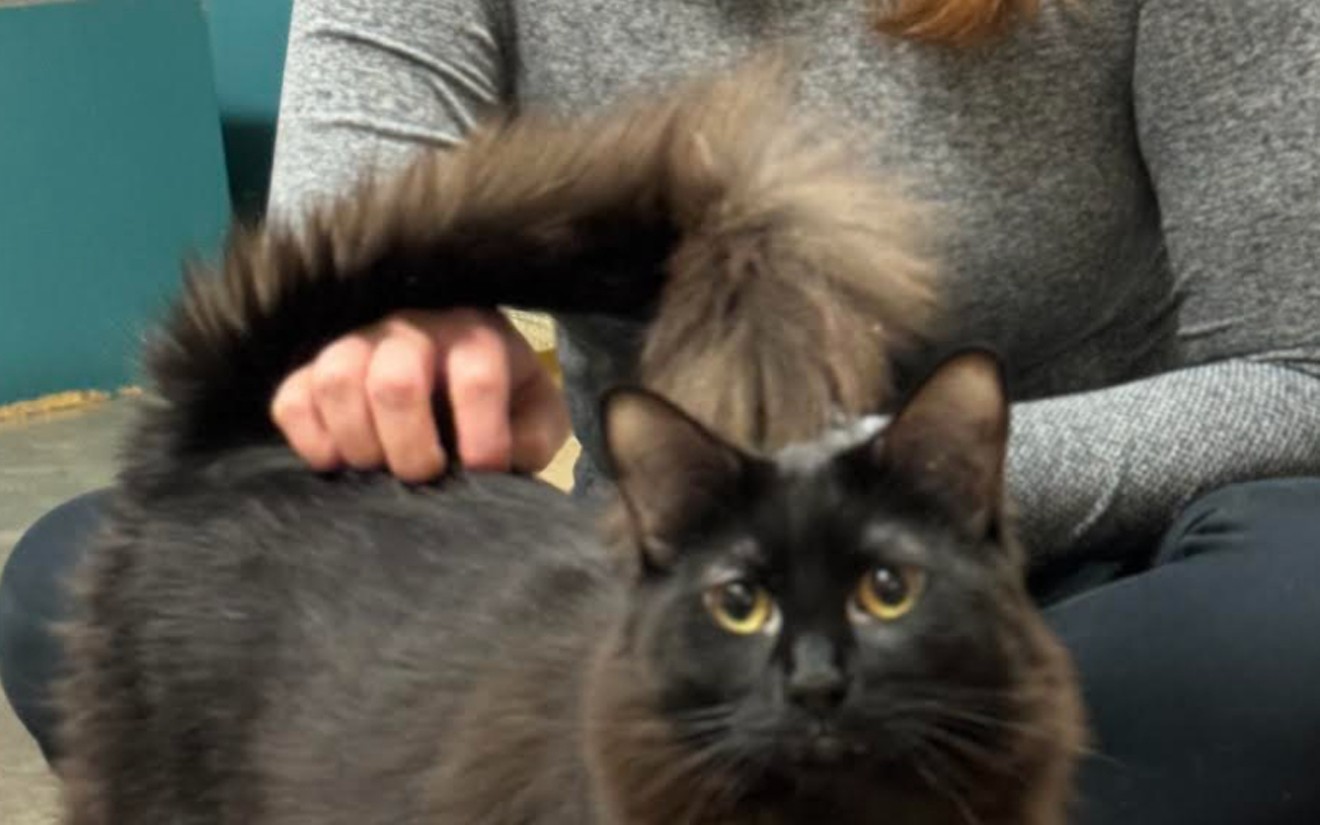Melissa Taylor, Animal Behavior & Training Manager at Friends For Life Animal Shelter, operates a one-of-its-kind behavior program at the shelter, incorporating a choice and agency based approach to animal training.
Through her work in finding behavior training techniques that benefit animals, she realized that the adoption process only provides a little control for pets and possible adopters.
“I have been working in animal shelters for over 25 years, and I don’t think that animal shelters typically take into account how stressful that experience is,” Taylor said. “The more stressed out people are, the less likely they are to make a good choice or any choice at all.”
This is why Taylor and level 4 behavioral volunteer Brandon Wong, who has a background in software development, created Friendr For Life. Friendr uses an online dating app-like algorithm to match someone interested in taking a dog or a cat home from the shelter to potentially adoptable pets.
The algorithm uses the possible adopter’s responses from a multi-level questionnaire based on their behavioral preferences for an animal to build these pairings. The questions cover various topics in detail, such as whether or not an adopter wants an incredibly active pet or one that prefers to lay on the couch. It also asks the potential pet owner whether or not it is important that the animal can do well around other animals, children, or strangers.
Once the questionnaire is completed, the person taking it will be matched with numerous possible pets by the percentage of the likelihood they are a good fit for one another. A feature added shortly after it launched last week, allows users to view any of the animals they paired with on a separate new tab, so they don't lose the data from their results page.

Each question is paired with multiple possible responses that allows the user to choose the one that reflects their personal preference.
Screenshot
“If you go to the shelter, you’re more likely to say, ‘Oh, I don’t mind, I’ll take it (the animal). I love all cats. I just want to save a cat,” she said. “But then, to your phone, you’ll say, ‘Well, I really just want a cat who loves every person who comes to my house and wants to cuddle with me nonstop.’ You can be a little more self-serving to your phone.”
According to Taylor, through the line of questioning, those who may not have thought about their preferences, can be prompted to do so, too.
Salise Shuttlesworth, founder and executive director of Friends For Life Animal Shelter, said that Friendr is the opposite of a “Cosmo quiz.” What sets it apart from other animal matching services is that the questions are rooted in research and synced to the specific attributes of animals at their shelter.
Usually, when adopters head to their local shelters to find what could be their forever furry friend, they are asked about accommodating the animal, such as whether or not it will be an indoor or outdoor pet, how regularly the potential owner could walk it and what an adopter's backyard looks like.
However, Friendr's line of questioning focuses on something entirely different — the behavioral relationship shared between the pet and the person. It prioritizes both their needs, without isolating one, and does so regarding specific details of the adopter and individual animal.
Shuttlesworth and Taylor said “Meet Your Match,” developed by the American Society for the Prevention of Cruelty to Animals, is one of the more well-used of these animal matching services. Since it first launched in 2001, it has been widely implemented at agencies across the country.
Meet Your Match groups animals into broad buckets of personality types. An adopter then takes the quiz and receives the response of what general personality type of pet their needs are best suited for. This could mean matching with dogs from groups green, orange or purple — which would indicate that having a physically and mentally engaged canine, one that is more middle-of-the-road in terms of activity or one more laid back, leading an easy-going lifestyle is best for the adopter, respectively.
The cat categories use the same color groups: green for those who adapt quickly to new situations, oranges for cats that are easy-going and purple for those who need time and engagement to adjust to new surroundings.
Shuttlesworth said this system was useful then, “This is the difference between the Garmin (older navigation system) in your car that gives you directions and having maps on your phone.”
“It’s not worth anything if you’re an 85 percent match with Calum (a dog from Shuttlesworth’s shelter) if Calum's information in the system isn’t super accurate,” she added.

Calum will meet with potential adopters on Sunday, these are the first people that have been interested in him for years.
Photo by Friends For Life Animal Shelter
Over 775 people have used the matching platform since the shelter made it available online, and within 24 hours, the facility started getting interested in animals who never received any.
Calum is one of the adoptable animals who is receiving newfound attention. He has been with the shelter since he was 10 months old and is now 11 years old. During his stay, Calum has had surgeries, knee issues, a slight fear of strangers and behavioral training.
Calum's potential adopters – a couple — took the quiz. Initially, the boyfriend wanted the dog to look a certain way, and the girlfriend preferred bringing home a senior pet. They told Taylor that after taking the quiz, they realized that their main priority was finding a calm dog.
Nick the cat, one of the shelter's "fraidy cats" — a behavioral program for cats that assists those who tend to be scared of people or other elements of their environments — also garnered interest through Friendr.
Possible adopter Jacqueline Chadwick met with Nick on Monday after matching with the shy, but lovable cat using the shelter's matching service. She ended up deciding to take him home.
Taylor came up with the concept when reviewing research about disintermediation — when consumers find new ways to get products or services without using traditional involved methods — that showed over the past 25 years that the only way of meeting a person’s significant other that trended upward was meeting one another online through dating apps.
She said this, alongside the fact more and more people are making significant decisions and choices online, such as buying a car, made her want to find a way to translate these concepts to the shelter animal adoption process.

A graph that showcases the way online dating in the United States displaces other ways of meeting featured in a report by Michael J. Rosenfeld, Thomas J. Reuben and Sonia Hausen.
Graph by John Hopkins
Shuttlesworth said that people may feel the pressure of wanting to make sure they pick the right animal or not knowing which pet would be better to take out of the shelter versus which one would be okay if left behind.
“You’re still scrolling through choice, after choice, after choice and it feels like everyone is a potential equal fit,” she said.
Although a possible pet owner does not have to come into the shelter or visit who they match with, the shelter recommends that if they want to adopt, they use their results to guide the adoption process.
Taylor is currently working to make the matched results shareable so interested adopters have the ability to show their significant others, family members and friends the pets they are paired with. She added that this will also make it easier to share the quiz to those wanting to take it.
“It’s kind of like blind dating — but for pets,” Taylor said.







